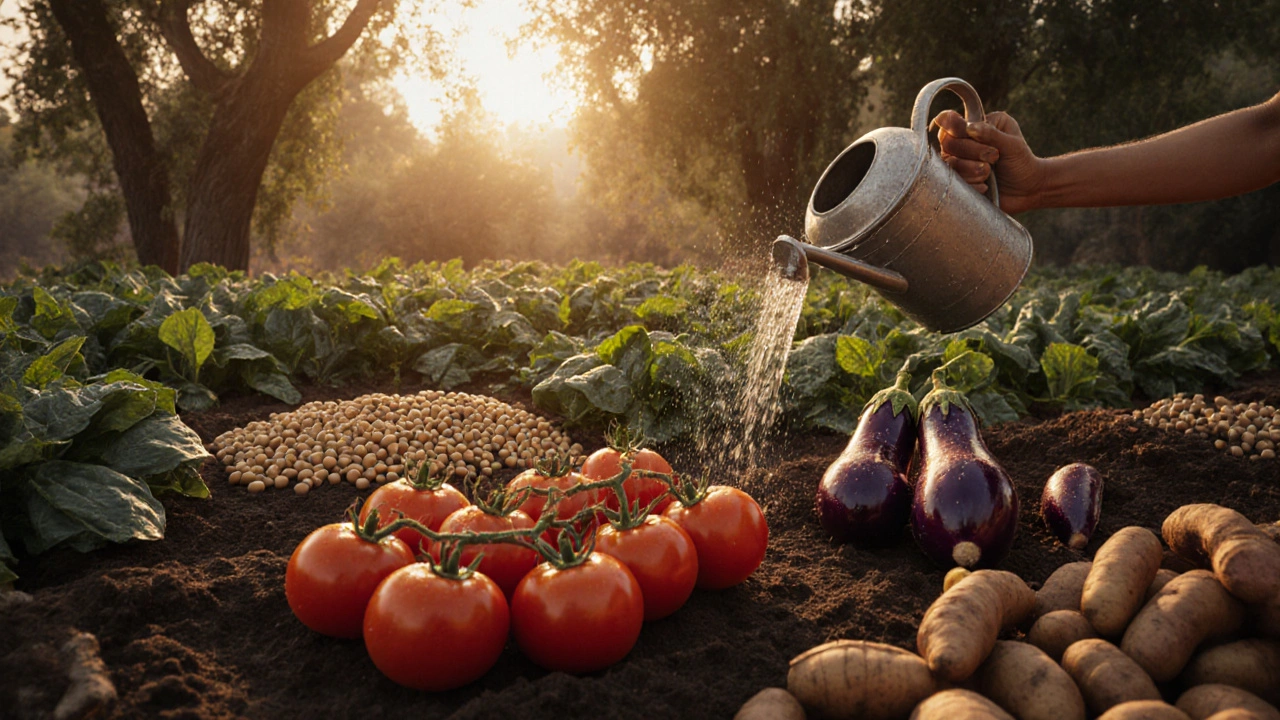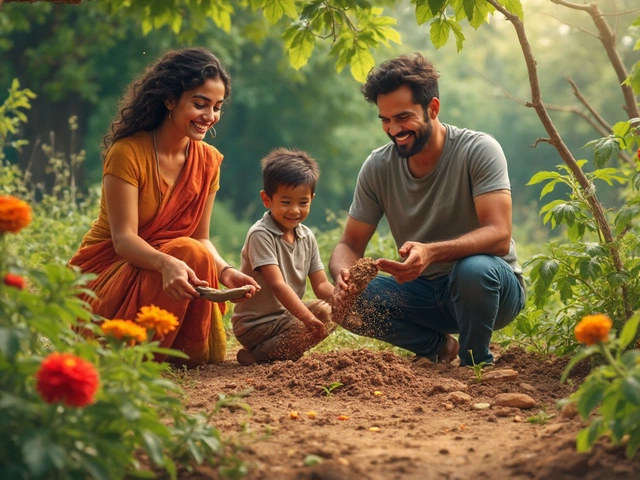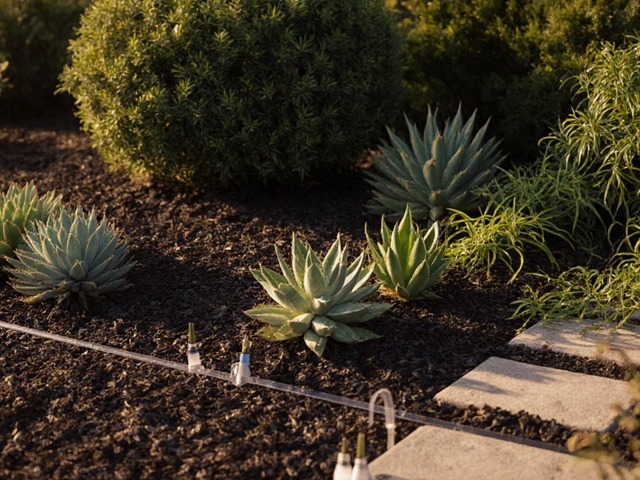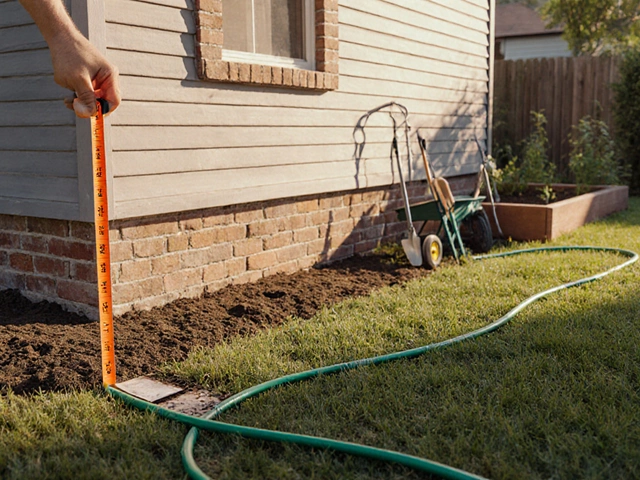Ever heard someone say one vegetable is secretly wrecking your gut? If you’ve been growing tomatoes, potatoes, or eggplant in your Indian kitchen garden, you’ve probably heard this claim too. It sounds alarming - like your favorite curry ingredient is quietly sabotaging your health. But here’s the truth: no single vegetable is designed to damage your insides. What’s really going on is a mix of misinformation, individual biology, and the overuse of certain plants in modern diets.
The Nightshade Myth
The vegetable most often blamed for internal damage is the nightshade family. That includes tomatoes, potatoes, eggplants, and bell peppers. These plants contain alkaloids - natural compounds like solanine and capsaicin - that act as a defense against pests. In high doses, these can be toxic. But the amounts in the fruits and tubers we eat? Far below dangerous levels.In India, where tomatoes are used in almost every regional dish and potatoes are a staple in curries and snacks, people often assume digestive discomfort comes from these veggies. But if you’re eating them cooked, peeled, and in normal portions, your body handles them just fine. The real issue? Eating raw green potatoes or unripe tomatoes. Those contain higher solanine levels. A single green potato, if eaten raw, could cause nausea. But that’s not a vegetable being evil - it’s a warning to avoid spoiled produce.
Why Do Some People Feel Bad After Eating Nightshades?
Not everyone reacts the same way. Some people with autoimmune conditions like rheumatoid arthritis or IBS report feeling better after cutting out nightshades. That’s not because these vegetables are inherently harmful. It’s because their immune systems are hypersensitive to certain plant compounds. Think of it like lactose intolerance - it’s not milk that’s broken, it’s your body’s ability to process it.A 2023 study from the All India Institute of Medical Sciences tracked 420 adults with chronic digestive issues. Half eliminated nightshades for six weeks. Only 17% reported noticeable improvement. The rest saw no change. That means for 83% of people, nightshades aren’t the culprit. Blaming tomatoes for bloating ignores other factors: fried food, spicy chutneys, low fiber intake, or even stress.
What About the Soil? The Real Culprit in Indian Gardens
Here’s where the myth gets tangled with gardening reality. In many parts of India, home gardeners reuse soil year after year without rotation. They plant tomatoes, then potatoes, then eggplant - all nightshades - in the same patch. That depletes nutrients and invites pests like nematodes and fungal blight. The plants become stressed. Stressed plants produce more alkaloids. So if your tomato plant looks sickly, and you eat its fruit, you might feel off. But it’s not the tomato’s fault - it’s the soil.Proper crop rotation fixes this. After tomatoes, plant legumes like beans or peas. They fix nitrogen. Then grow leafy greens like spinach. This breaks pest cycles and keeps your vegetables healthy. Healthy plants = lower alkaloids = no digestive upset.
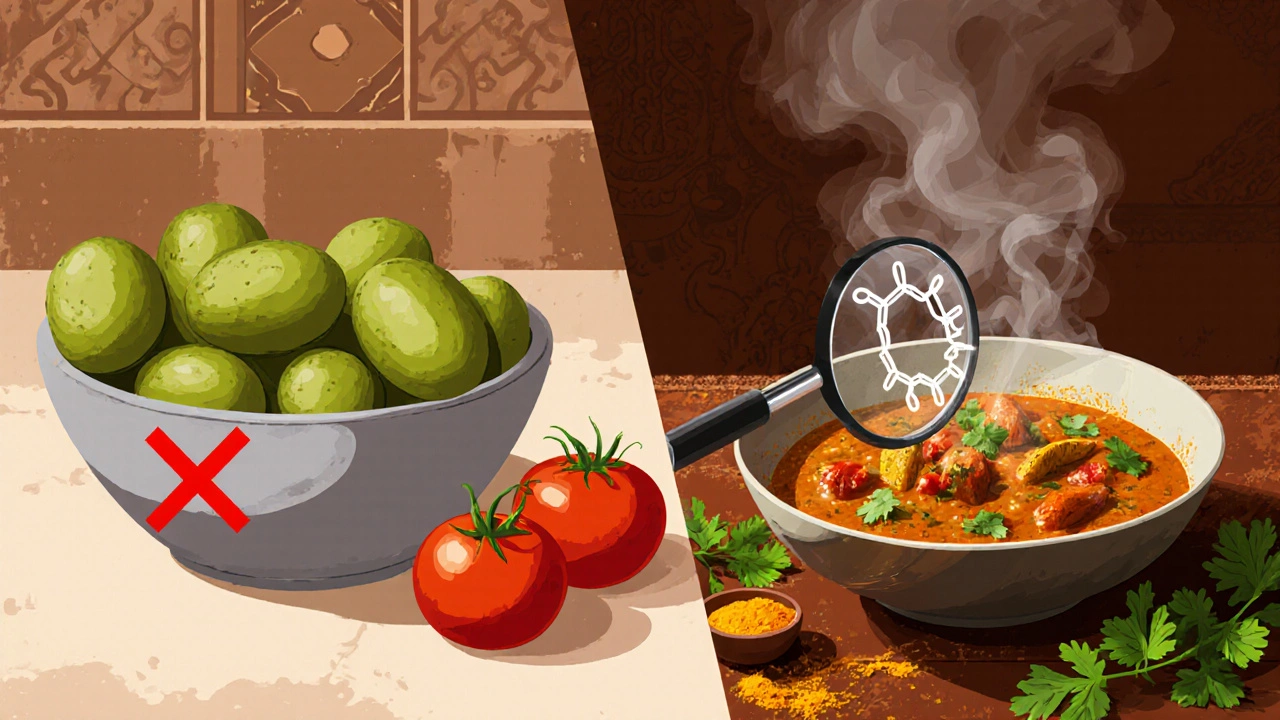
Real Vegetables That Can Cause Problems - And How to Avoid Them
There are actual vegetables that can cause issues if eaten raw or in excess:- Raw kidney beans - contain phytohaemagglutinin, a toxin that causes vomiting. Always boil them for at least 10 minutes.
- Cassava - if not soaked and cooked properly, it releases cyanide. Common in some rural diets, but rarely grown in home gardens.
- Raw spinach - high in oxalates. Can contribute to kidney stones if eaten daily in large amounts. Cooking reduces oxalates by 30-87%.
None of these are nightshades. And none are common in Indian home gardens as daily staples in raw form. The real danger? Eating raw vegetables without washing them. Pesticide residue, dirt, or bacteria from contaminated water can cause stomach issues. That’s not the vegetable’s fault - it’s how it’s handled.
Why This Myth Persists in Indian Households
The idea that one vegetable is secretly toxic fits a simple, scary story. It’s easier to blame tomatoes than to examine your diet, cooking habits, or soil quality. Plus, traditional wisdom sometimes gets twisted. Grandmothers might say, “Don’t eat tomatoes at night,” because they used to be eaten raw in summer and caused indigestion in unrefrigerated homes. That’s not a chemical danger - it’s a food safety issue.Modern marketing fuels this too. “Detox” tea brands and “anti-inflammatory” diets sell products by scaring people into cutting out entire food groups. But science doesn’t support blanket bans. The WHO recommends five servings of vegetables daily - including nightshades - to reduce chronic disease risk.
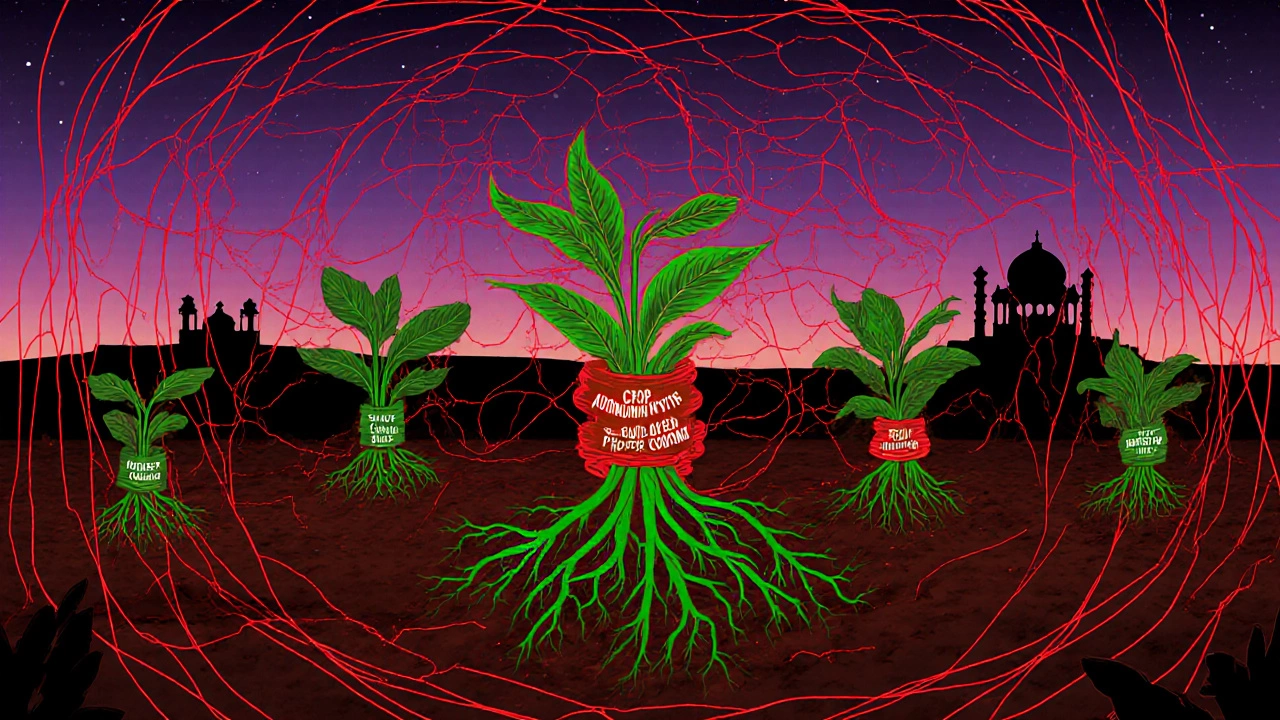
What You Should Do Instead
If you feel bloated after eating eggplant or tomatoes:- Check if they’re ripe. Green or bruised produce has higher alkaloids.
- Cook them. Heat breaks down compounds that might irritate sensitive guts.
- Wash them well. Use a brush and running water - especially if grown in urban areas with air pollution.
- Rotate your crops. Don’t plant nightshades in the same spot two years in a row.
- Track your meals. Use a food journal for two weeks. Is it the tomato, or the fried samosa you ate with it?
Most people who feel better after avoiding nightshades don’t realize they also cut out processed snacks, fried foods, and sugary sauces. It’s not the vegetable. It’s the package it came in.
Bottom Line: Nightshades Are Safe - If You Grow Them Right
There is no single vegetable that damages your insides. Not tomatoes. Not potatoes. Not eggplant. The real problem is poor gardening practices, processed food pairings, and misinformation spread online. In Indian home gardens, nightshades are nutritious, easy to grow, and deeply cultural. They belong in your kitchen.Grow them in rotated soil. Eat them cooked. Wash them clean. And stop listening to fear-based claims. Your body - and your garden - will thank you.
Are tomatoes bad for your stomach?
Tomatoes are not bad for your stomach unless you eat them raw and unripe, or you have a rare sensitivity. Cooking tomatoes reduces their acidity and makes them easier to digest. Most people can eat tomatoes daily without issues. If you feel bloated after eating them, check what else you ate with them - fried foods, spices, or dairy are more likely culprits.
Can nightshade vegetables cause arthritis?
There’s no scientific proof that nightshades cause arthritis. Some people with autoimmune conditions report feeling better after removing them, but this is anecdotal. A 2021 review in the Journal of Nutrition and Rheumatology found no consistent link. If you suspect a connection, try eliminating them for 4-6 weeks under medical supervision - but don’t assume they’re the cause.
Is it safe to eat potatoes with sprouts?
No. Sprouted potatoes contain higher levels of solanine, a natural toxin. Even if you peel them, the toxin can spread inside. If a potato is green or has long sprouts, throw it out. Small sprouts can be trimmed off if the potato is still firm and not green - but it’s safer to avoid them altogether. Always store potatoes in a cool, dark place to prevent sprouting.
Why do Indian grandmothers say not to eat tomatoes at night?
This advice comes from older times when refrigeration was rare. Raw tomatoes eaten at night in hot weather could spoil quickly or cause mild indigestion due to their acidity. It was a food safety tip, not a medical warning. Today, with proper storage and cooking, eating tomatoes at night is perfectly safe for most people.
What’s the best way to grow healthy nightshades in Indian soil?
Use well-drained soil, rotate crops every season, and avoid planting nightshades in the same spot two years in a row. Add compost before planting. Water at the base, not the leaves, to prevent fungal diseases. Use neem oil spray if pests appear. Healthy plants produce safer, tastier fruit. Don’t over-fertilize - too much nitrogen makes plants grow fast but lowers nutrient density.
